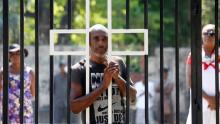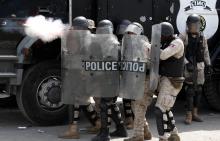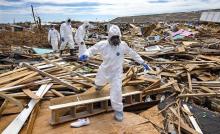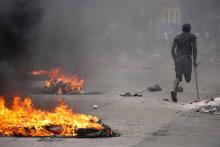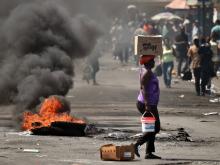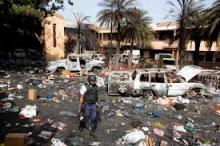We Are Not Prepared: Haiti Confronts a Pandemic
Haiti's health care system, a patchwork of public and private facilities, was struggling prior to the pandemic. Instability and its root causes of poor governance, corruption, and poverty have resulted in poor access to health services for most Haitians. BBC journalist Will Grant writes below that will every country in the Americas will be impacted by the coronavrius (COVID-19) pandemic, Haiti lacks the capacity and financial resources needed to increase its preparedness. As has long been the case, the hard work of addressing growing health needs falls upon non-governmental organisations such as Partners in Health who received Haiti's first cases.
